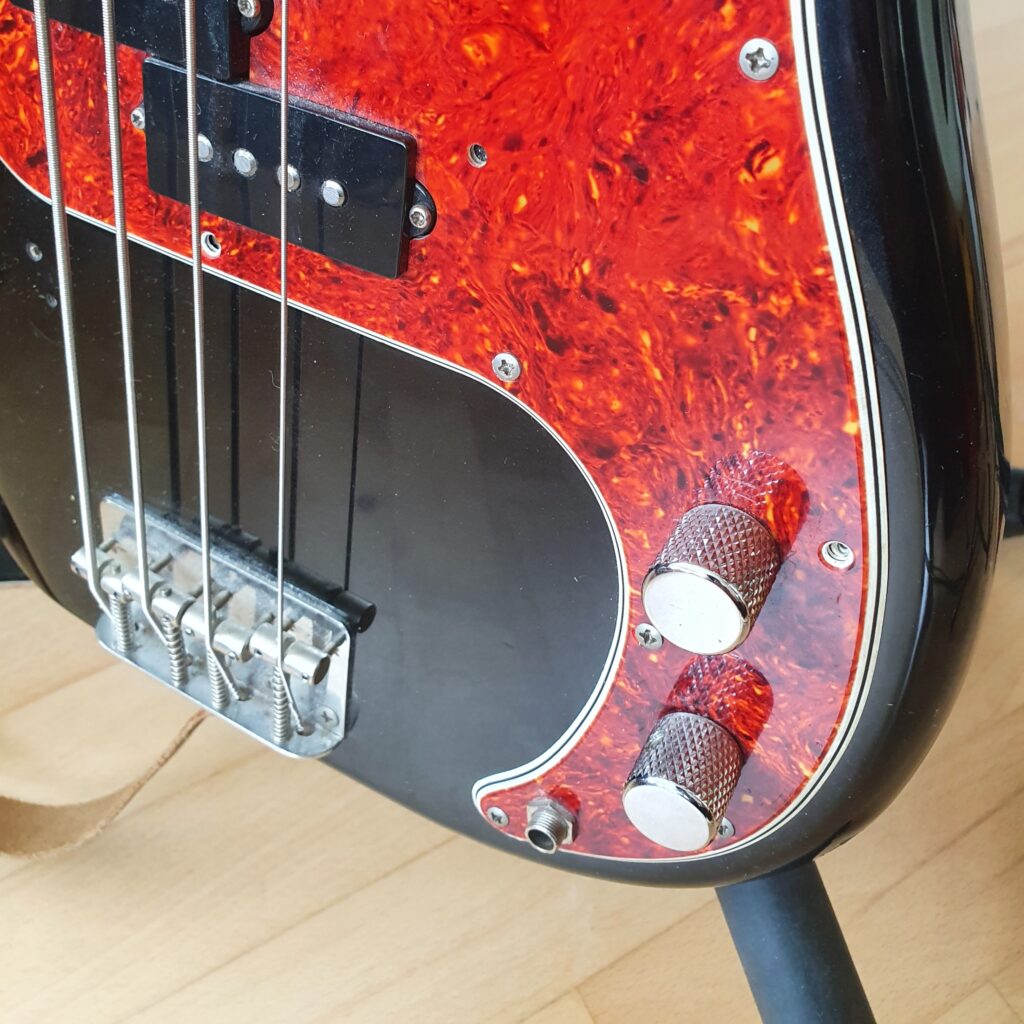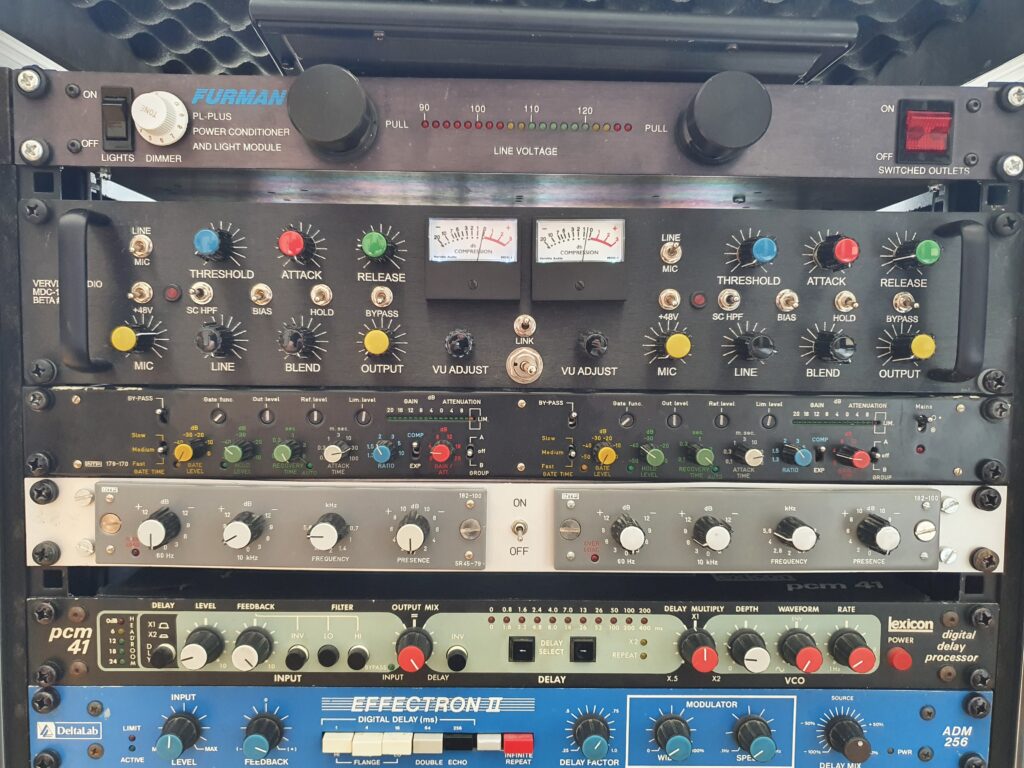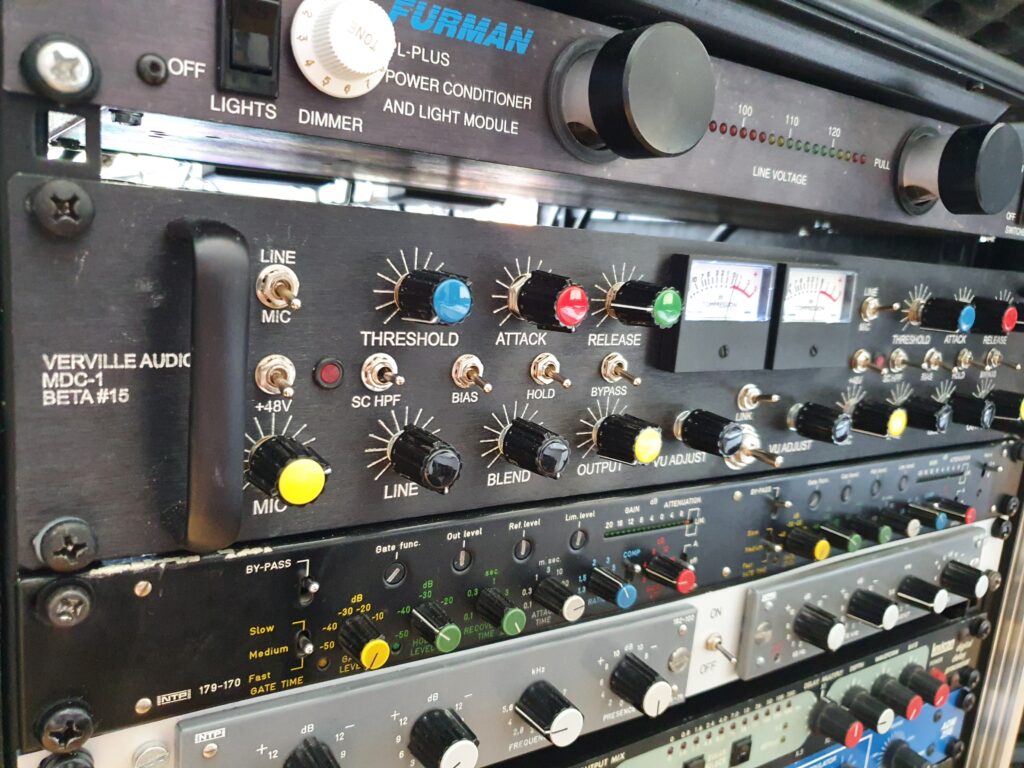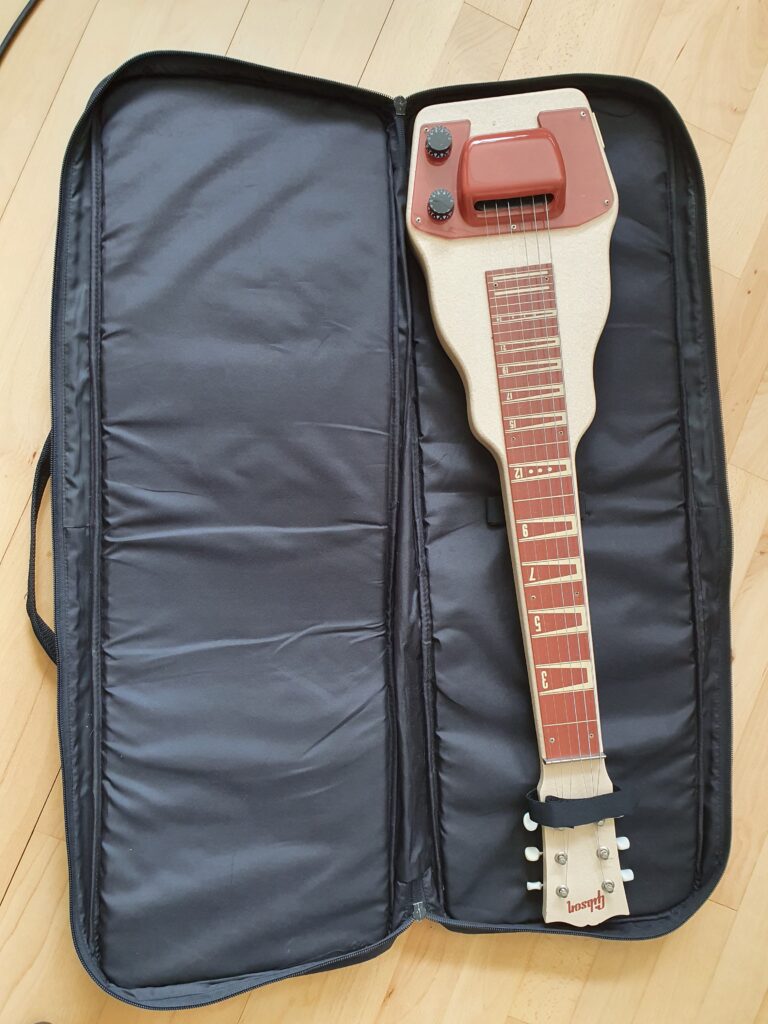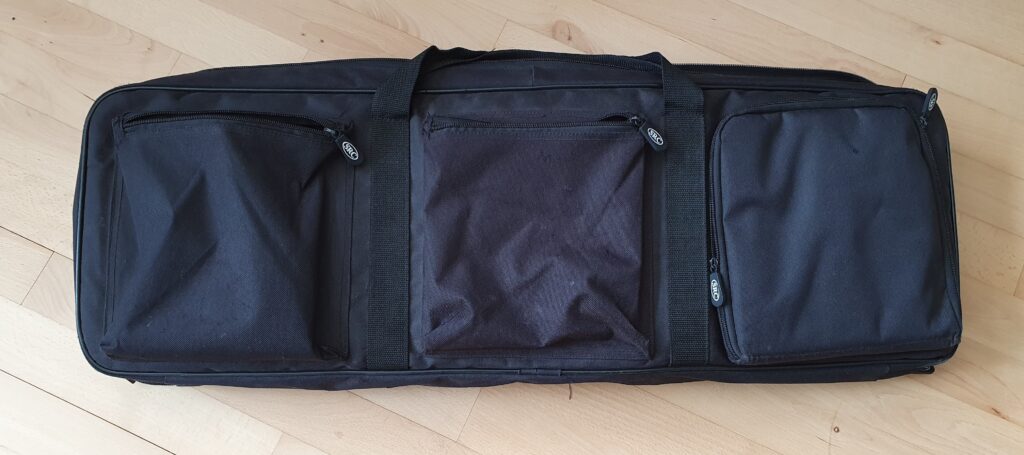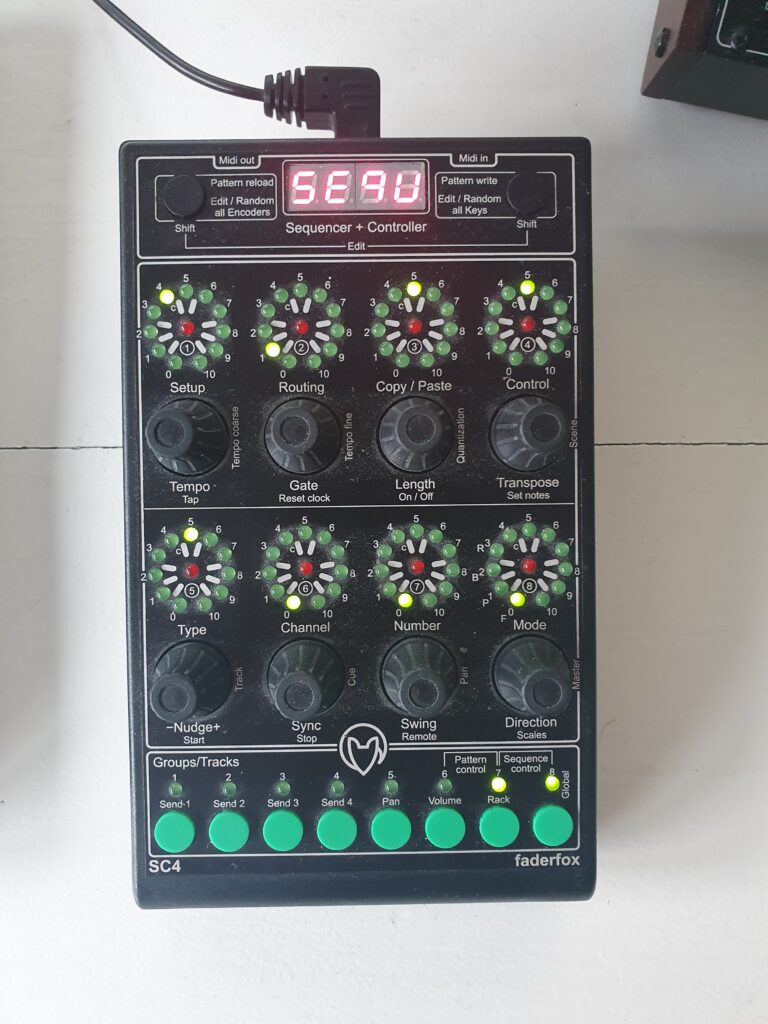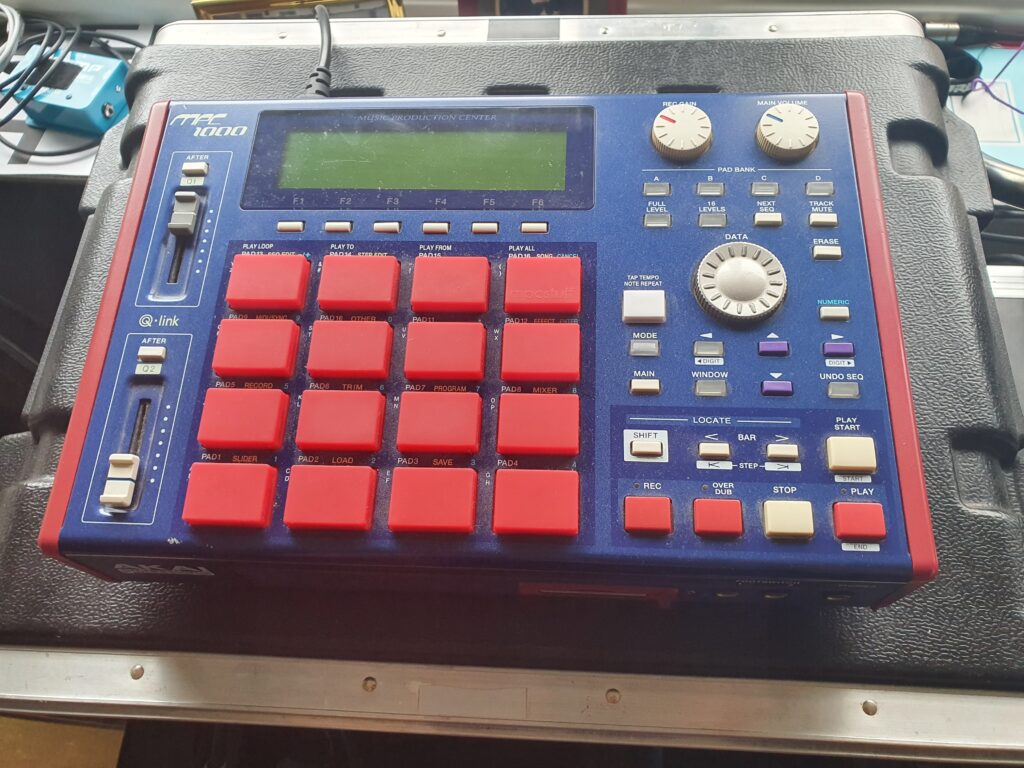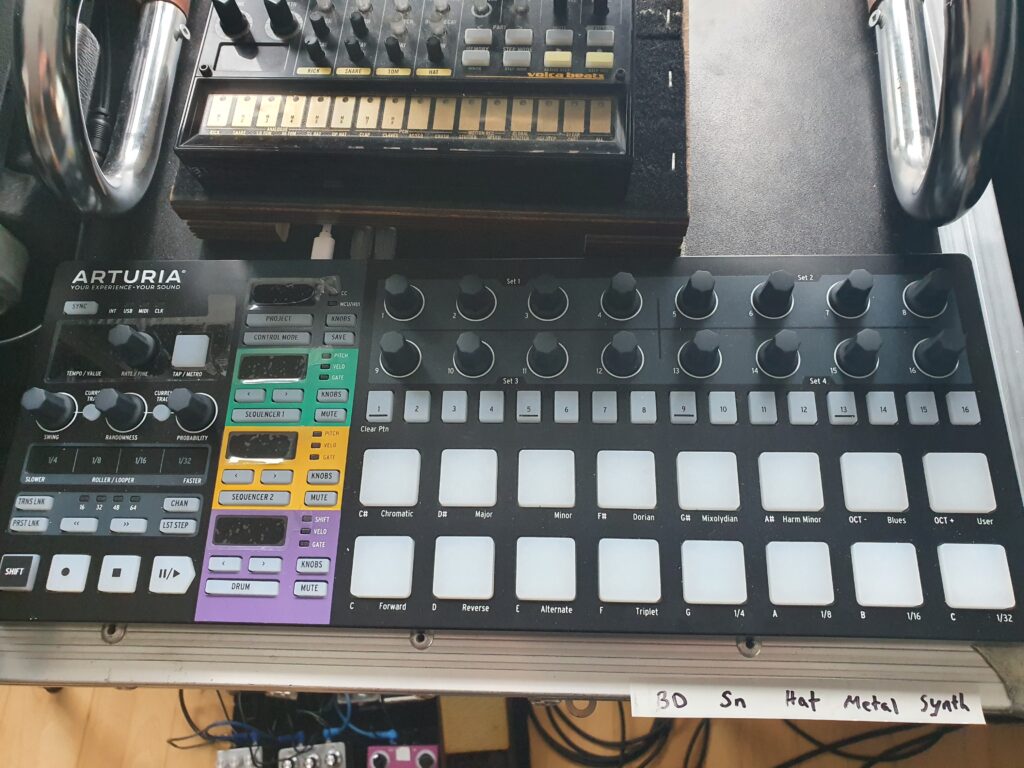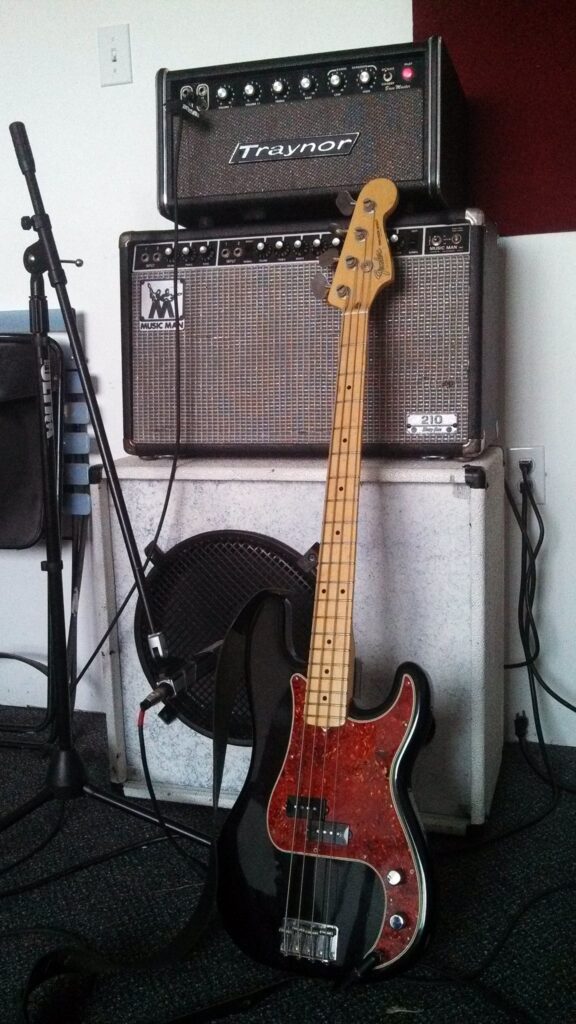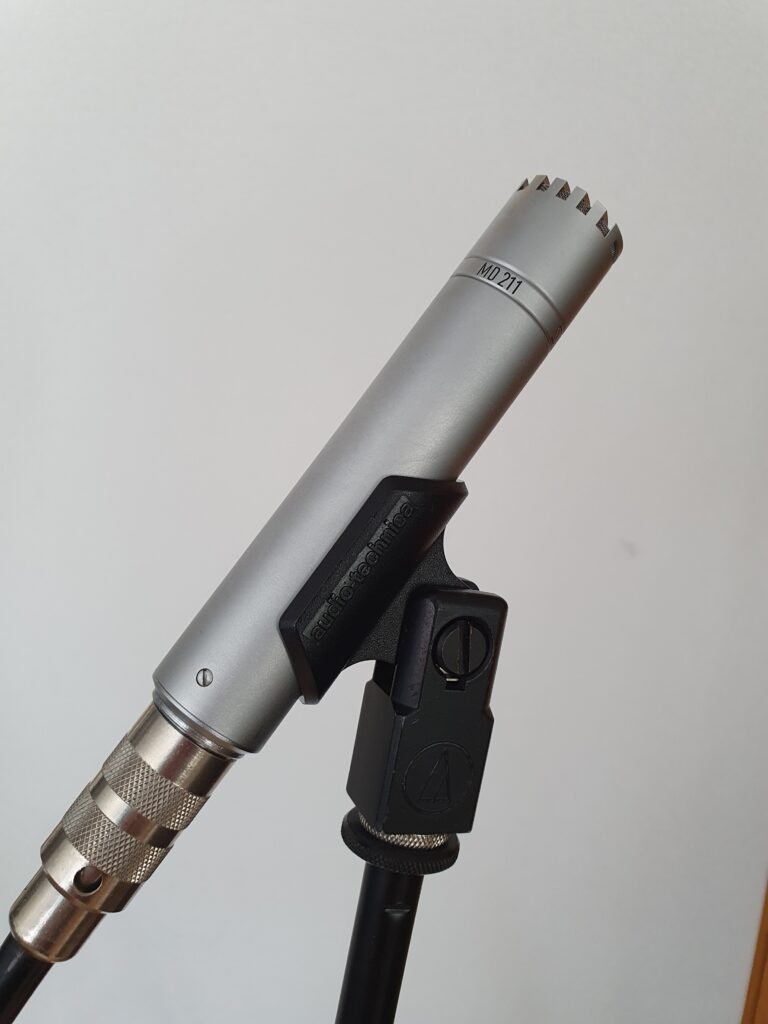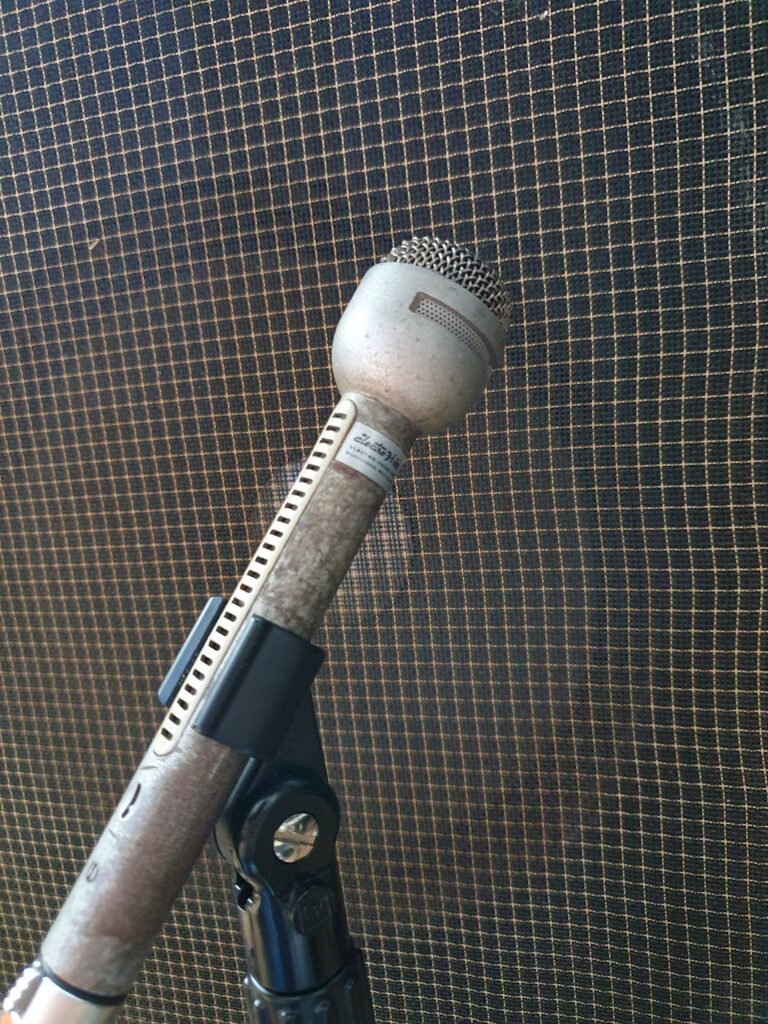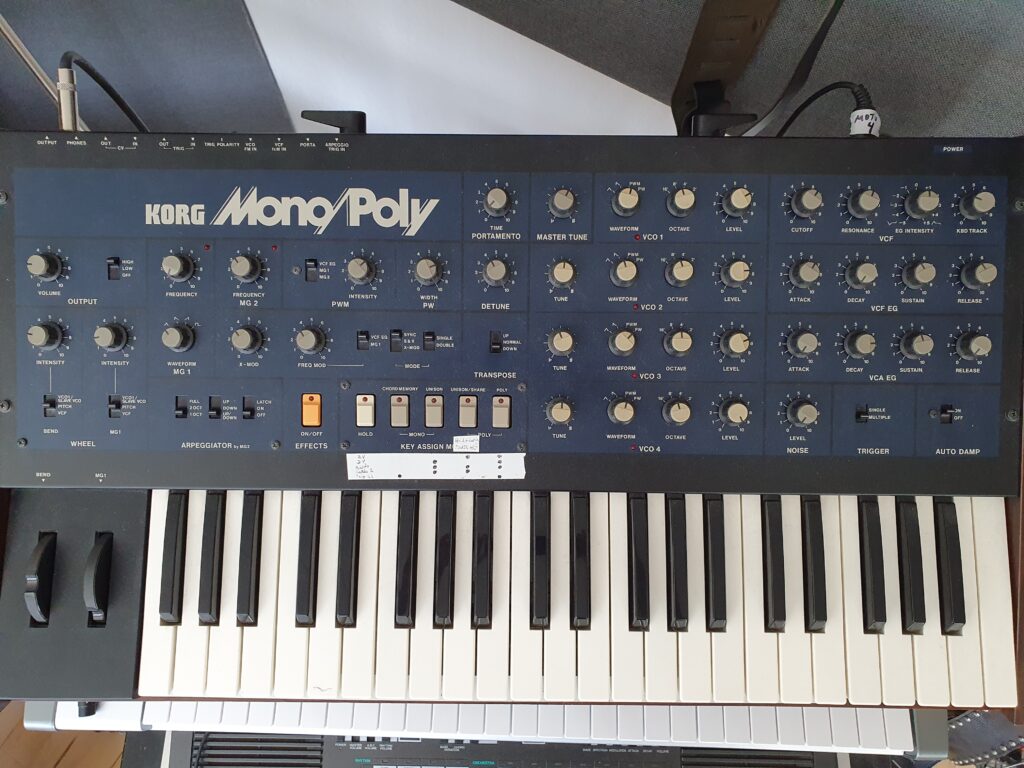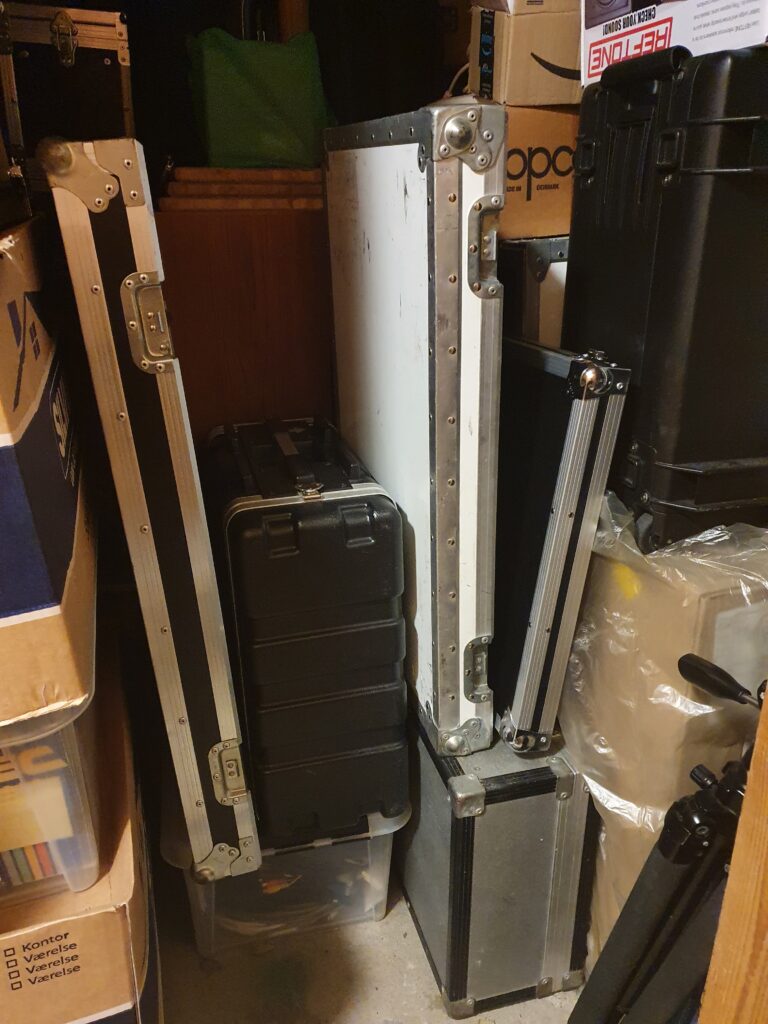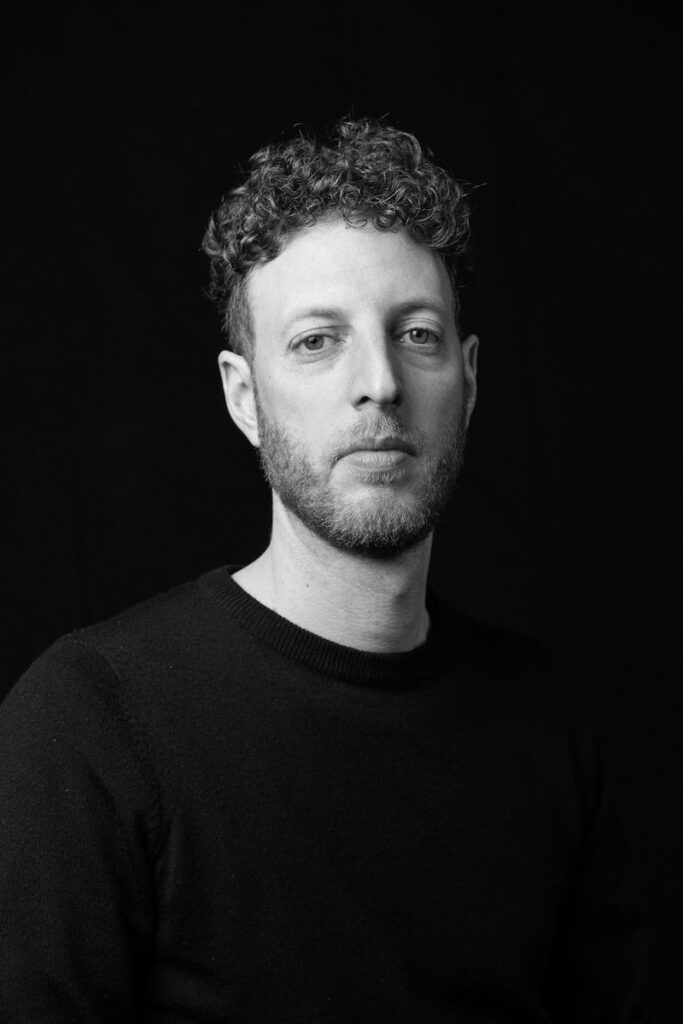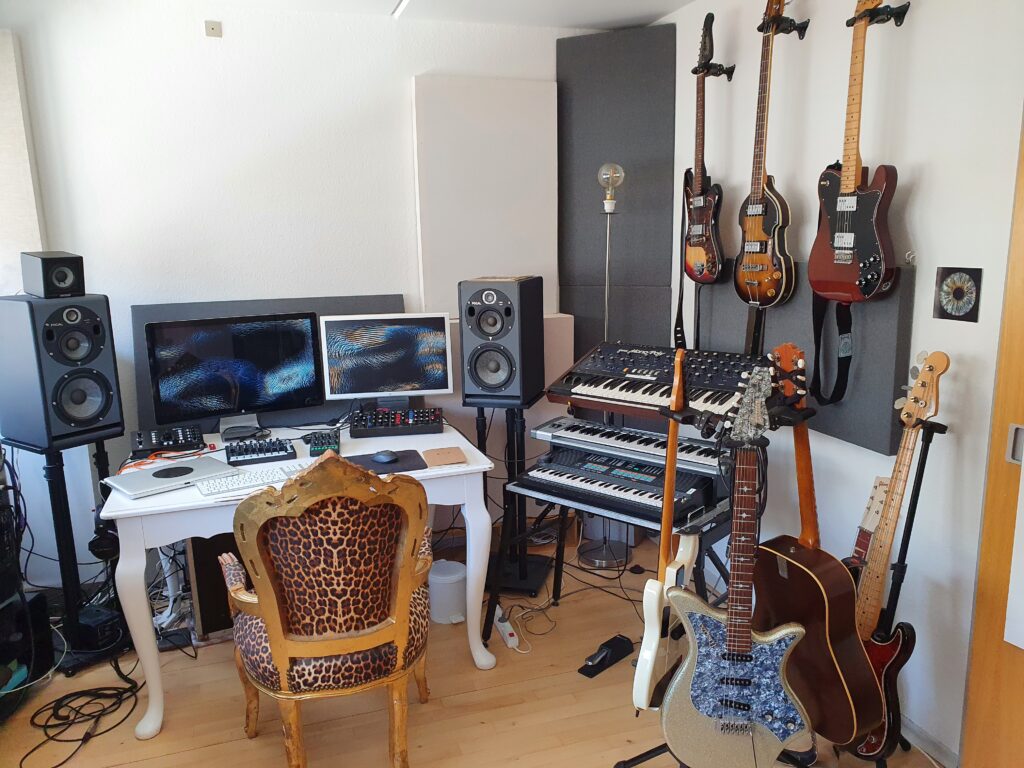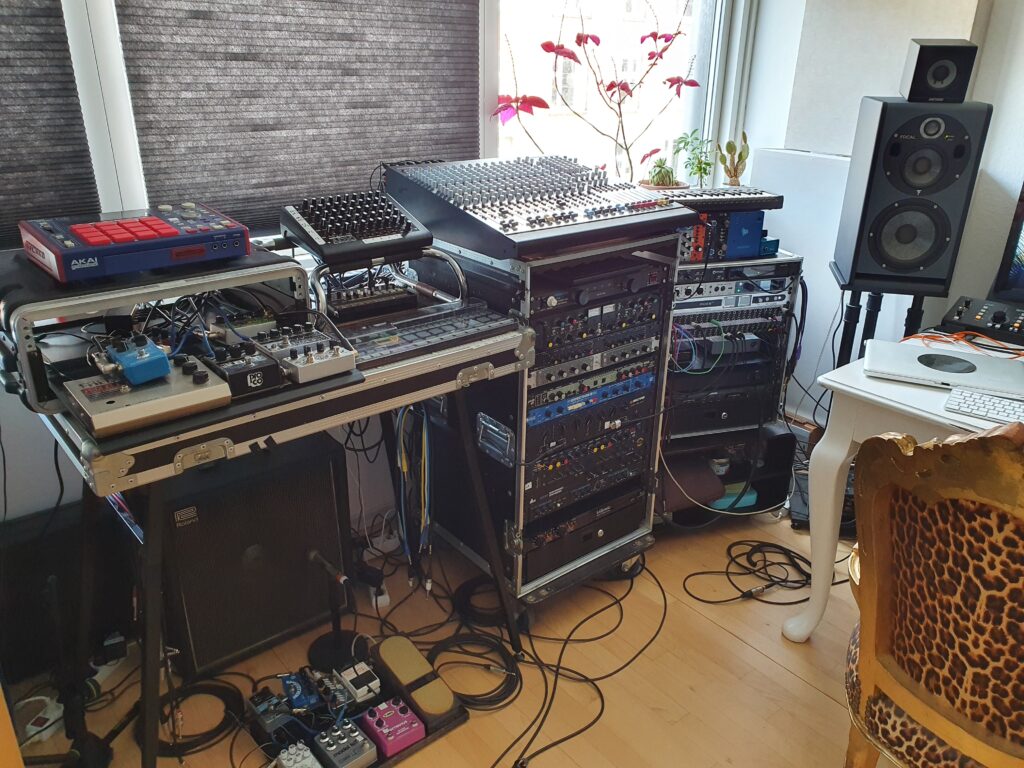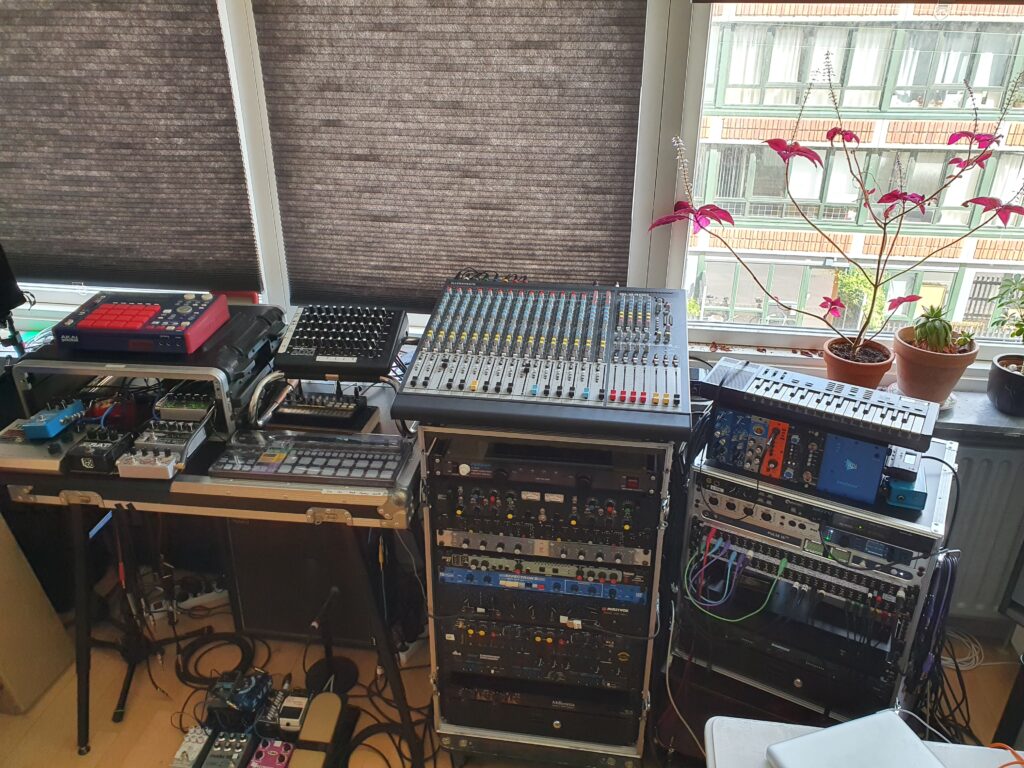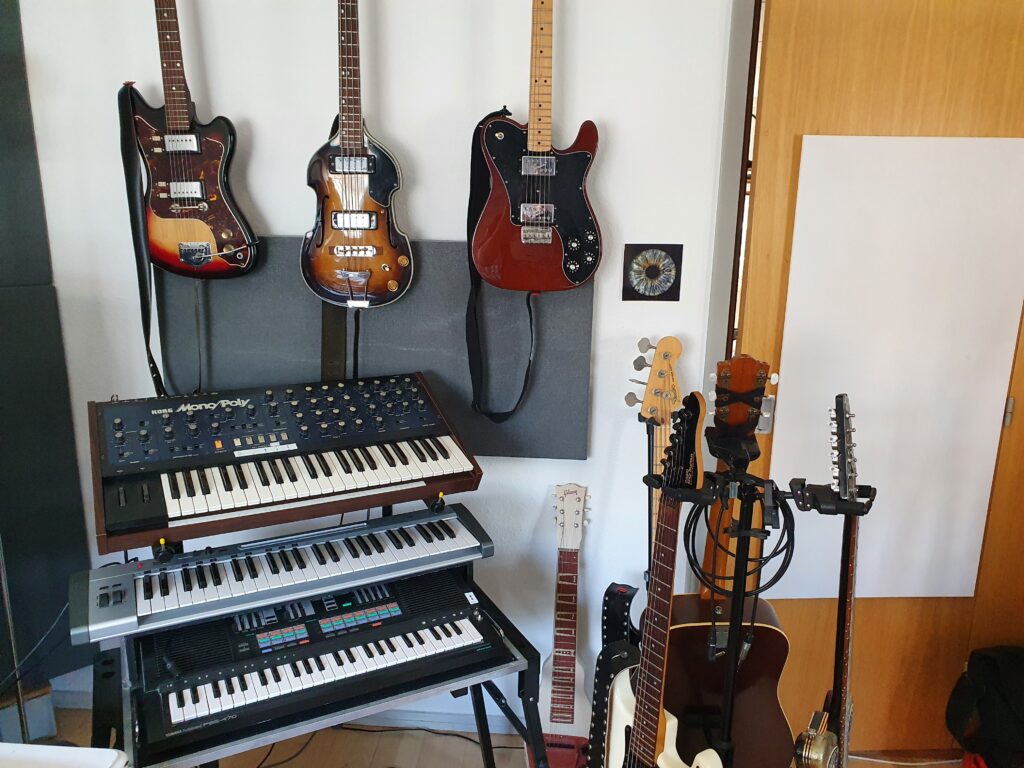1. Favourite knob/fader/switch on a piece of gear and why?
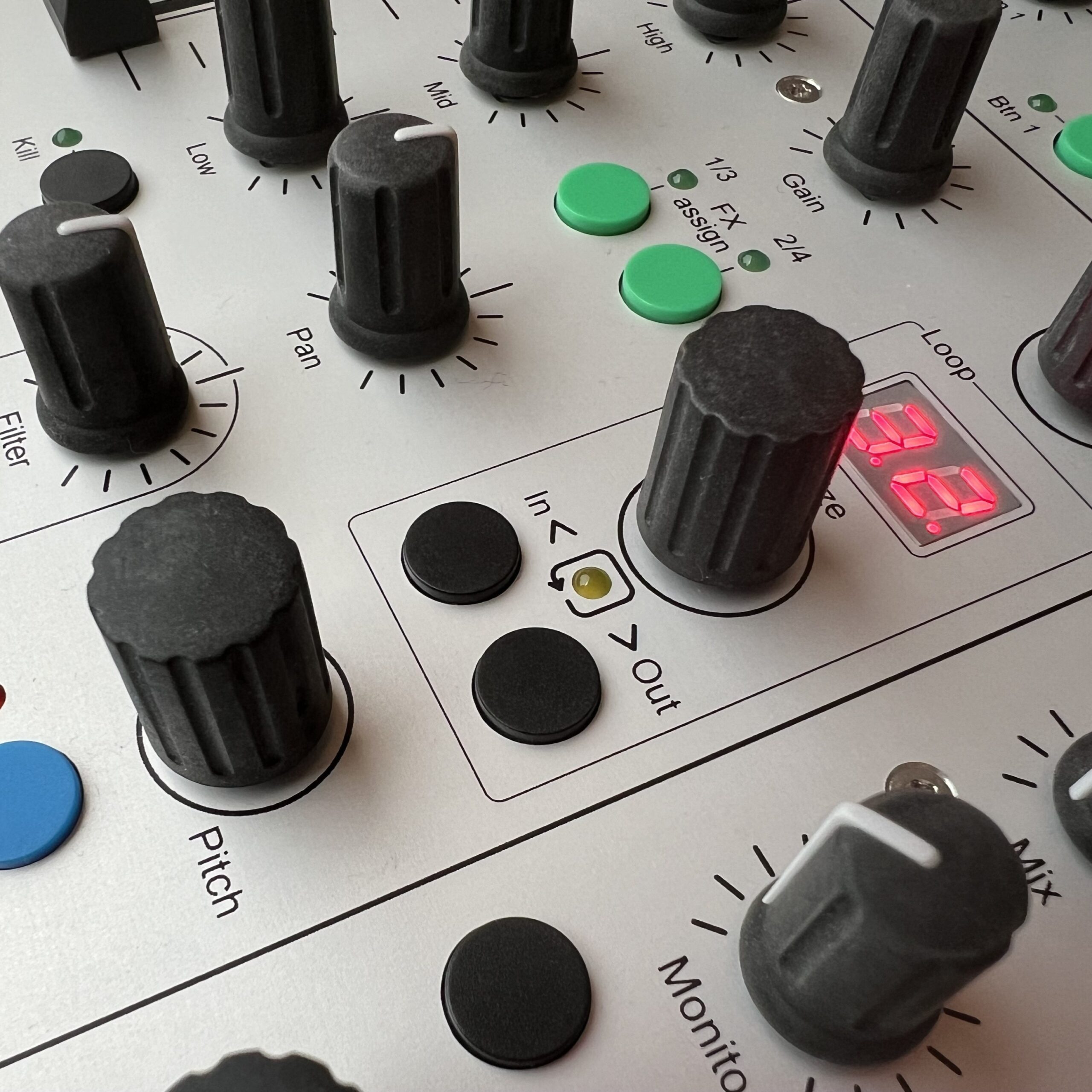
The knobs on the Faderfox DJ44 are, to me, the pinnacle, but what do I know? Faderfox does such great work with its range of devices, and this one, in its little metal case, is an exceptional example of attention to detail. When I read your question a few years ago, when you first sent me the interview request, the DJ44 was my immediate thought — and it remains my answer to this day. I mention it with a sense of the bittersweet, because I’m likely going to trade my DJ44 at some point, because I just don’t use it as much as I used to, but in any case it’s a fantastic device.
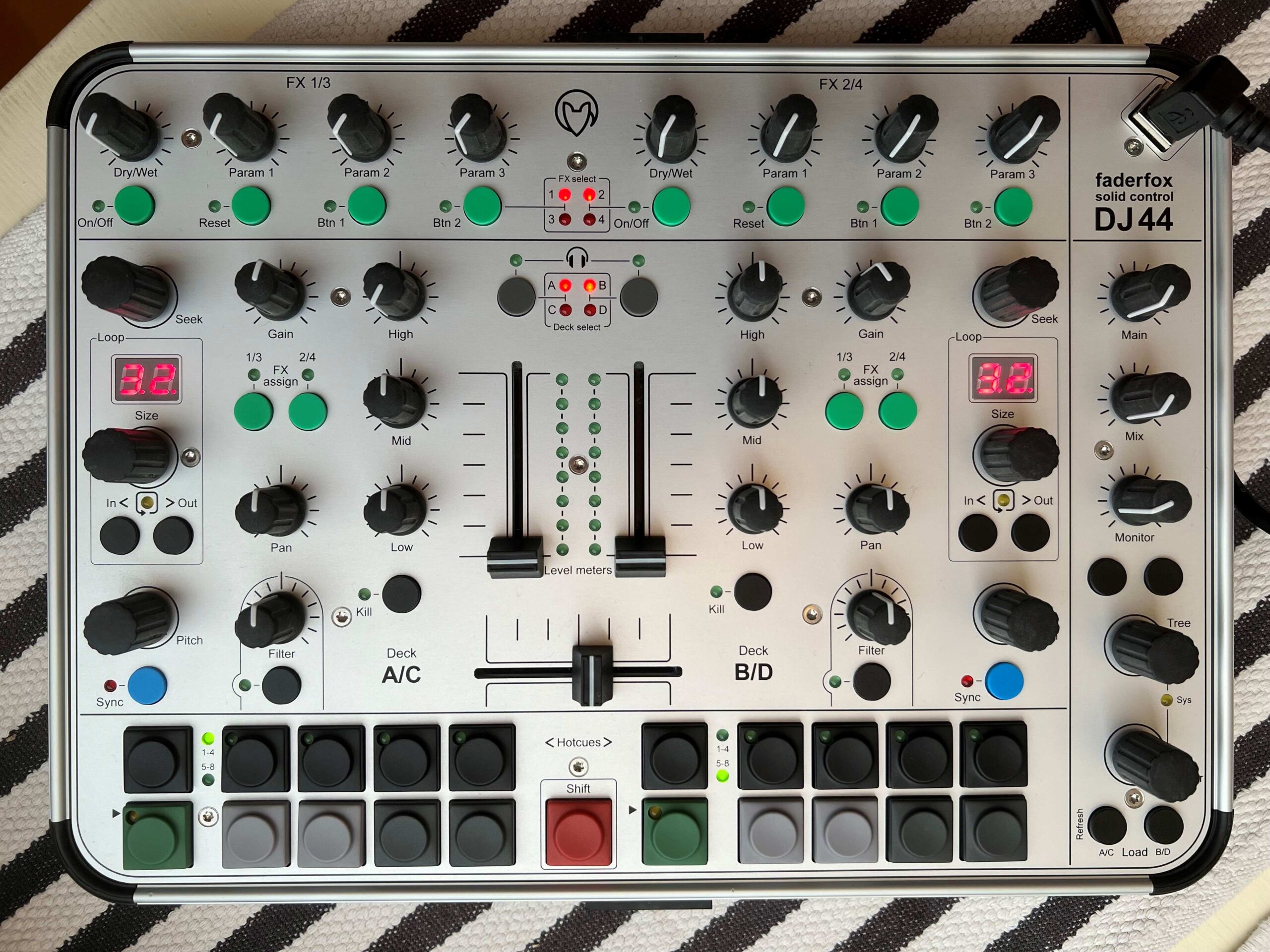
2. Do you have an ‘almost’ perfect bit of kit? What would you change?
I love the Norns from Monome. I had the original Norns, the one with the metal case, which I bought used, but couldn’t really justify the cost, even used, so I sold it and bought a Norns Shield, which is a cheaper version that lacks a battery, among other differences. I had two Norns Shields for a while but sold one of them. There is now a larger Norns Shield called the Norns Shield XL, which I may trade up to at some point. My choice here of the Norns is a bit of a cheat since the Norns is essentially a tiny little computer that can run a wide array of software scripts, and the Norns isn’t just the Norns itself — it’s also that ever-growing library of open-source scripts that people write for the Norns, and the community of people themselves. In any case, the Norns is fantastic. What would I change about it? Honestly, nothing.
If I can give a second answer: I love the full line of Buddha Machines and I use them a lot for music-making.
3. What setup do you bring on holiday/tour/commute etc.?
I’ve pretty much always got an iPad with me. I purchased a used Traveler Guitar Ultra-Light Acoustic last year on a visit to Portland, and it is very easy to bring on a trip. Despite being tiny, it has a full fretboard with an acoustic piezo pickup. I was in Los Angeles for a few days for a friend’s memorial service at the start of winter, and I had a recuperative time in the hotel room with just the guitar, a little Orange amp (the PPC108), my iPad, and the 8mu from Tom Whitwell’s ingenious line of Music Thing Modular instruments. (I played a small role in the development of the 8mu. Whitwell says he started on the project when he read a tweet of mine in 2019 that went: “Isn’t there some sorta readily available very small MIDI controller, like the size of a cellphone, with a couple buttons, a couple faders, a couple knobs?” The 8mu is what resulted.)
4. What software do you wish was hardware and vice versa?
I’d love for the handheld Dirtywave M8 Tracker (no relation to the abovementioned 8mu) to be available as software. I think I read somewhere that such a port may yet happen. I certainly appreciate Renoise, the long-running tracker software, but I don’t think it’d be disrespectful of me to suggest the Renoise interface can be a tad overwhelming. The M8 is, in truth, menu-heavy in its own way, but I’d sure love to be able to use it on my laptop. I would have said the Monome Teletype, but that finally happened on VCV Rack, so I’ll go with another, simpler answer, which is I’d love for the Ornament and Crime module to be a VCV Rack module — and that would include the Hemisphere Suite alternate firmware and, heck, all the alternate firmware options. A funny thing happened in the years since you first sent this list of questions to me, which is that so many great physical synthesizer modules have been ported to VCV Rack, as a result of which this question was more difficult to answer today than it would have been back in 2020.
As for the reverse, from software to hardware, that’s an even more difficult question, because a lot of my favorite software, such as the Borderlands app, isn’t purely software; these are tools that work because of the physical interface on which they run. An app like Borderlands already is hardware, in a manner of speaking, because it runs on an iPad. However, a distinction can be made between a piece of software-driven hardware that will work until the thing breaks, like a guitar pedal with firmware, versus a piece of software that is dependent on a separate operating system, such as iPadOS in the case of Borderlands, that may break the software when the OS updates and the old hardware on which it ran is sunsetted. Any number of iOS apps fall into the latter category.
In addition some software, like the Koala app, already have physical parallels in hardware: if I want Koala in standalone hardware form, I could just get an Roland SP-404 (I do want to try the MK II, which does a bunch of stuff the Teenage Engineering EP-133 K.O. II doesn’t). I love Samplr, which also falls into the Borderlands category of being iPad-specific. I love SuperCollider, but it requires a computer keyboard and a screen — I wonder what “hardware SuperCollider” might even mean, right? In many ways, SuperCollider is as tied to a keyboard as Koala, Samplr, and Borderlands are tied to iPadOS. So, no, there isn’t really a piece of software that I wish was hardware.
5. Is there anything you regret selling… or regret buying?
I had two Technics SL-1200 turntables and a mixer many years ago, and I sold them as our family grew and our home seemed to get smaller. I miss them, but I also couldn’t justify the space, and I still couldn’t today. There’s some regret in that, but also a healthy dose of realism. I trade gear with some regularity, and it feels like pieces are always in flux, so I don’t regret anything I have passed on. If I wasn’t using something enough, then it’s best being with someone else who can make use of it. In fact, I currently have a few instruments on semi-permanent loan from other people who can’t quite part with them but don’t have the space or need for them.
6. What gear has inspired you to produce the most music?
To keep it simple: the OG Ditto Looper. Or more to the point, a handful of them in combination with my electric guitar.
7. If you had to start over, what would you get first?
The process has been inherently exploratory for me, and it remains so. I probably wouldn’t do anything differently in particular, unless I had started much earlier or much later. For example, had VCV Rack existed before I got into modular, I’d probably have proceeded in a different manner.
8. What’s the most annoying piece of gear you have, that you just can’t live without?
That question pretty much sums up my mixer, a Mackie 1202VLZ4. It’s called a “compact mixer,” but it’s only compact if your sense of reality has been warped by too much time in professional recording studios, which mine hasn’t. The thing seems absurdly large for the amount that I use it, but a mixer is essential and I’m not sure what I could use that’s smaller. I need a lot of ins and outs in a mixer. And that doesn’t count a pair of audio interfaces I use. Maybe there’s a patchbay I could use in its place somehow? Maybe the Teenage Engineering TX-6? (It does pack in six stereo inputs, but it’s priced a bit out of my realm.) Maybe I could combine an Expert Sleepers ES-9 with a mixer module and that’d do it? Maybe, as a friend recommended, I should just trade down for a smaller Mackie, the 802VLZ4, or an equivalent from another manufacturer. Maybe someone reading this will have a recommendation.
9. Most surprising tip/trick/technique that you’ve discovered about a bit of kit?
Hooking a microphone up to the Dirtywave M8 Tracker was, as the saying goes, game-changing for me. As a result, I wasn’t surprised to read that the second generation of the M8 will in fact include a microphone.
Artist or Band name?
Marc Weidenbaum, Disquiet
Genre?
Ambient, field recordings, noise
Selfie?
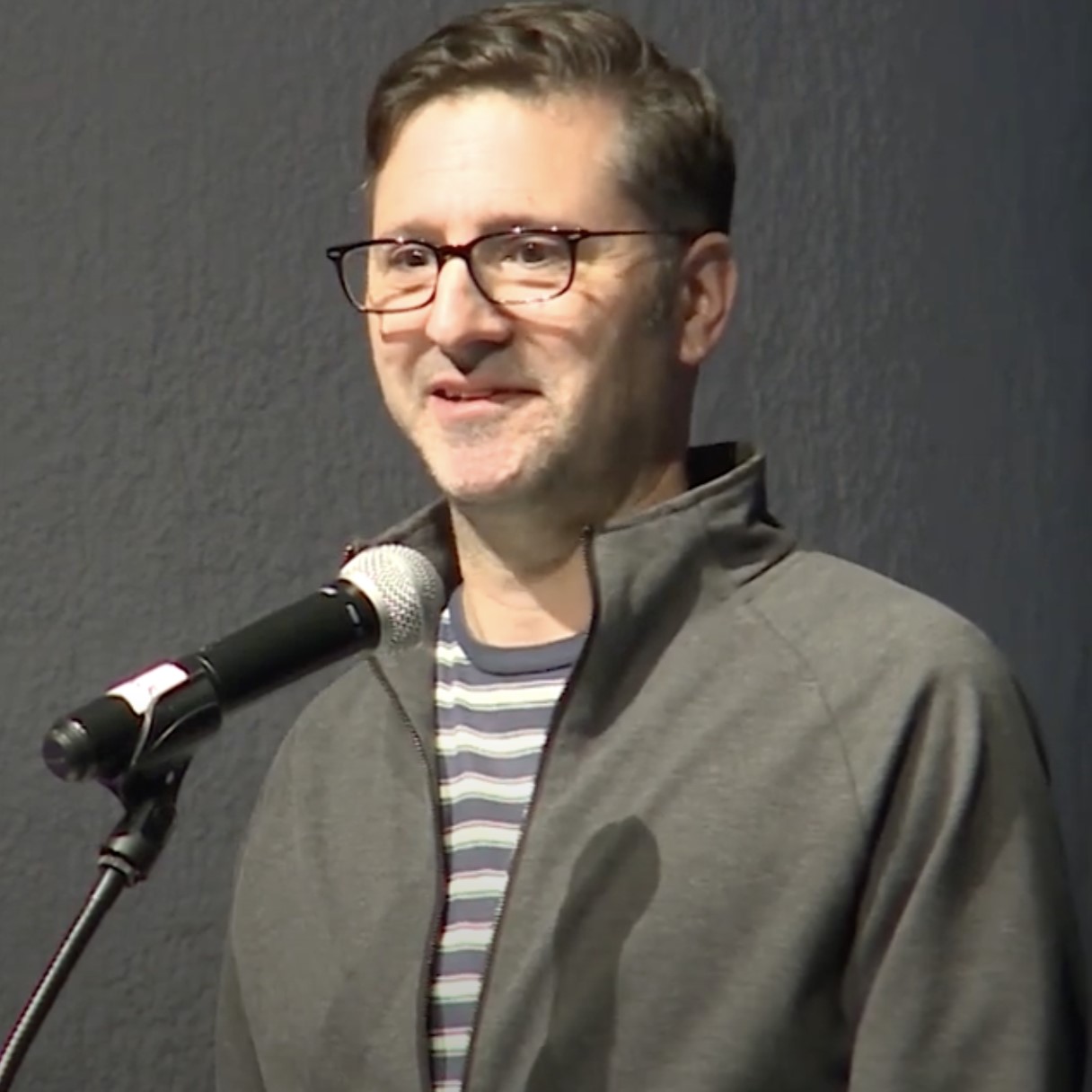
Where are you from?
I was raised in the same house on Long Island from when I was about a week or so old until I left for college. I moved to California after college — first to Sacramento, where I worked for Tower Records as an editor on its music magazines (Pulse!, Classical Pulse!, and epulse), and then to San Francisco. I’ve lived in San Francisco’s Richmond District ever since, except for four fantastic years in New Orleans.
How did you get into music?
I listened to the radio a lot as a kid. I didn’t have much spending money, so the radio was my connection to music. At some point my younger sister’s friend took pity on me and gave me, with her mom’s permission, a bunch of her own Beatles records, which had been hand-me-downs from her mom in the first place, I think. I dove in, and I never fully re-emerged: it’s safe to say that listening to “I Want You (She’s So Heavy)” on repeat as a teenager rewired my brain. By the time I was finishing high school I had branched out — Talking Heads, King Crimson, Funboy Three, stuff like that. I wrote for a campus music magazine when I was attending college, and by the time I left school I wanted to write full time about music. As the years went on, I came to recognize I’m as interested, if not more interested, in sound than in music on its own. As I think the philosopher Chistoph Cox put it, music is a subset of sound. That’s where my head is at.
What still drives you to make music?
Curiosity mostly. As someone who primarily writes, I’m fascinated by the idea of communicating non-verbally. Related topic: making music is way more social than writing is. Also, using instruments has helped me understand more deeply the music I write about, and playing has informed the collaborations I do with musicians, as well as the occasions when I interview musicians and other people who work in sound.
How do you most often start a new track?
I’m usually trying to approximate a combination of sound and signal flow that originates in my head — or more to the point, in my mind’s ear.
How do you know when a track is finished?
My skills are pretty limited, so I know when something has gotten to where I can’t usefully push it any further. I pretty much stop at the “sketch” phase every time. I think my listening may prefer sketches, as well, come to think of it.
Show us your current studio
I don’t have a studio, just a few Eurorack cases on a bookshelf by the edge of my desk. Most everything else I keep in a closet and pull out as I need it.
Best creative advice that you’ve ever heard?
Play something every day. (For me currently that is mostly practicing guitar and trying to become vaguely fluent in SuperCollider.)
Promote your latest thing… Go ahead, throw us a link.
I’ll mention two things:
First, I moderate an ongoing music community called the Disquiet Junto. Since the first week of January 2012, each Thursday I have sent out a music composition prompt. As of the first week of January 2024, we had reached 627 such prompts, and the Junto keeps going every week. Musicians from around the world participate. I encourage people to sign up and give it a try. You can learn more at disquiet.com/junto.
Second, I publish an email newsletter called This Week in Sound. It’s for fellow listeners interested in the role sound plays in culture, technology, politics, science, ecology, business, storytelling, warfare, art, society, and anywhere else it might resonate.
